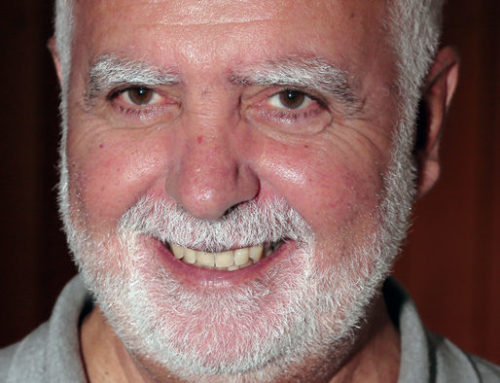31 October 1985
To the participants in the World Congress of the International Confederation of Catholic Hospitals
On 31 October the Holy Father received in audience the participants in the World Congress of the International Confederation of Catholic Hospitals. He spoke to them as follows:
Dear Brothers and Sisters,
1. I am truly happy to receive in a special audience all of you doctors, nurses, volunteers, nursing sisters and administrators who, representing Catholic hospitals throughout the world, have gathered in Rome for your Congress. Your aim is not only to study more deeply ways of improving collaboration between hospital health structures but also to provide scientific and technical support, as well as practical assistance, especially to developing countries.
I extend cordial greetings to all present, and particularly to the promoters of the “Confoederatio Internationalis Catholicorum Hospitalium”: to Mons. James Cassidy and to Dr. Marcello Sacchetti, respectively President and General Secretary of the Promotional Committee. A special greeting also goes to the esteemed Mons. Fiorenzo Angelini, Pro-President of the Pontifical Commission for Health Workers, and to Brother Pier Luigi Marchesi, who is here representing the Hospital Religious Institutes.
I wish you to know how pleased I am at your initiative, one which I hold to be important because it brings together qualified workers in the delicate field of health care in a context of knowledge, of friendship of discussion, providing you with a stimulus and a source of encouragement in the often exhausting and anonymous exercise of your activities. I am certain that your meetings, aimed at promoting ever closer cultural exchange and technical collaboration, will prove useful for your profession and for better service to those who turn to you for health care. It was precisely to increase such cooperation that I instituted a special Pontifical Commission last 11 February, expressing in the Motu Proprio Dolentium Hominum my hopes for a better coordination of all the Catholic organizations involved in the health care field (cf n. 4 ).
Care of body and soul
2. When it is a question of organizations like yours, which are inspired by the Gospel of Christ and the Magisterium of the Church – which by innate vocation has always promoted the care of the sick – my words become ever more confident and I feel more deeply grateful for the work that you perform. Your character as Catholic health care workers, who find in Christian moral principles a stimulus for your mission, makes you in some way continuers of the Lord’s healing activity, summarized in this way by the evangelist Matthew: “He went about all Galilee, teaching in their synagogues and preaching the gospel of the kingdom and healing every disease and every infirmity among the people. So his fame spread throughout all Syria, and they brought him all the sick, those afflicted with various diseases and pains, demoniacs, epileptics, and paralytics, and he healed them” (Mt 4 23-24).
As is well known, the cures worked by Jesus were not reducible to the pure and simple elimination of a pathological condition, but were at the same time prophetic signs of the advent of the Kingdom of God and of the new spiritual situation brought about in the one healed. In the biblical conception illness, like exile and slavery, appears as a provisional reality whose disappearance is tied to the coming of a new era. When Jesus healed the man born blind, the disciples asked him: “Rabbi, who sinned, this man or his parents, that he was born blind?” Jesus responded: “It was not that this man sinned, or his parents, but that the works of God might be made manifest in him” (Jn 9:2-3). Cures were thus the occasion for restoring physical health and for granting the soul salvation – for establishing, that is, the Kingdom of God in the one healed.
From Jesus’ example the Catholic health care worker derives the duty not to limit himself to the care of the body, though this is always urgent and necessary but to extend his concerns to the evangelization of the soul, inasmuch as patients have the right to be instructed on the meaning of life and death in the light of the Christian faith. Rich in this spirituality, the health care worker, particularly the priest, with the pastoral council, is called to carry on an important activity among the sick and their families, an activity founded on Christian hope. Beloved brothers and sisters, be credible and attentive witnesses of this hope at the bedsides of those who look to you for relief of the body and comfort of the soul.
3. In a world which is rapidly being transformed, you have also come together to exchange views concerning the technical aspects necessary for a better functioning of your health care facilities. In order to realize the lofty ideals I have mentioned, Catholic hospitals must neglect nothing in their efforts to assist the sick in the manner required by their dignity as persons “made in the image and likeness of God” (Gen 1:26).
No one is unaware of the way in which technological evolution and social, economic and political changes have altered the foundation upon which the whole life of the hospital rests in today’s world. Here we see the need for new dimensions in the educational process, especially in technical training, but above all in the moral preparation of health care workers at all levels.
Since Catholic hospitals are called to witness to the Church, they must re-examine in depth their organization, making sure that it ever better reflects the gospel values echoed in the social and moral directives of the Magisterium. May they not let themselves be absorbed by the “systems” that aim only at the financial component and the clinical-pathological aspects. May they be capable of “drawing ever nearer to man and of assisting him before the anxieties which assail him in the most critical moments of illness. May they be capable of creating a culture directed towards humanizing medicine and the hospital environment.
All this requires a strong unitary movement among Catholic hospitals – in all sectors, including the financial-organizational one. With this hoped-for unity, Catholic hospitals, even more than any other hospitals, even more than any other hospital institution, must be open to the needs of all patients on every continent, especially in developing countries.
4. There is one specific form of service that I would like to suggest once more for your consideration, for in this matter too I am convinced that Catholic hospitals ought to be an example to other health services and structures. In every part of the world there is a vigorous increase in the phenomenon of voluntary service, whereby large numbers of people, especially among the young, offer to spend at least a part of their time in doing unpaid work for the community. For Christians, assuming such responsibility for the public good is a practical way of showing a willingness to follow Christ’s example by sharing the problems and difficulties of one’s brothers and sisters.
How can we fail to give due recognition to the significant contribution that can be made to health care facilities by the loving and discreet presence of voluntary workers, complementing the work of the nursing staff? Voluntary service, if it is properly coordinated, can help to improve the quality of the care provided, adding an extra touch of human warmth and attention which can obviously comfort the patients and probably also have a positive effect on the course of therapy.
I know that in a considerable number of Catholic hospitals, especially in the chronic wards, much is already being done in this sphere. But present circumstances would seem to suggest that now is the time for an effort to make even greater use of the resources of generosity available in the community, and for this purpose it might prove very useful for the various hospitals run on Christian lines to share their experiences. The objective to be aimed at is a health care structure that is not isolated but a vital part of the social fabric of the neighbourhood. An active exchange between the community of the healthy and the community of the sick cannot fail to prove a powerful incentive to a general growth in charity.
The present moment is full of great responsibilities for Catholic hospitals, and their survival depends upon how Catholics succeed in dealing not only with the sick of today but with all the people of today. Their survival likewise depends upon whether Catholics will succeed in creating a new culture and new forms of pastoral care for the sick, capable of witnessing the Christ as the Saviour of both soul and body.
New forms of pastoral care
5. Dear brothers and sisters, the problems awaiting a solution are very many. My hope is that you will not fall short of what is expected of you in order to maintain the high esteem rightly accorded to the health care institutions which the past has entrusted to your responsibility. Continue to follow your traditions with exemplary dedication, for the cause which you serve is noble and ennobling: it is the cause of humanity! May this ideal sustain you in the difficulties that you encounter and may it inspire in your hearts the sentiments that caused the Good Samaritan to take care of the man left wounded on the road (cf. Lk 10 30-35).
To all of you I impart my Apostolic Blessing.
John Paul II







